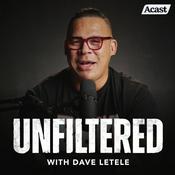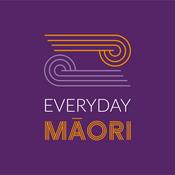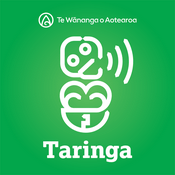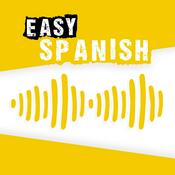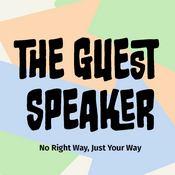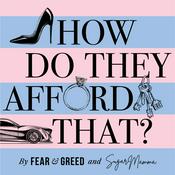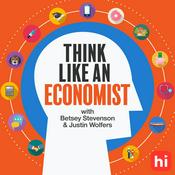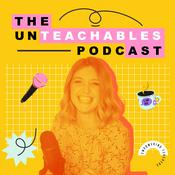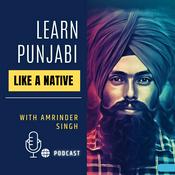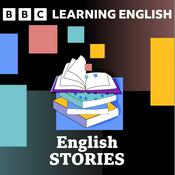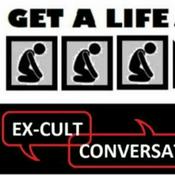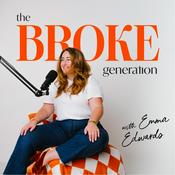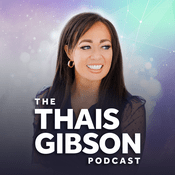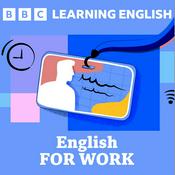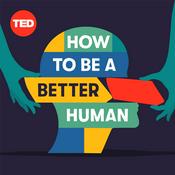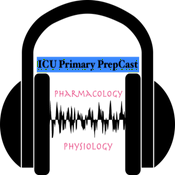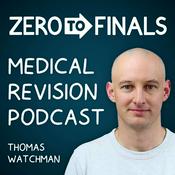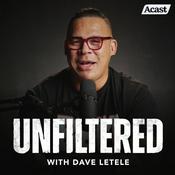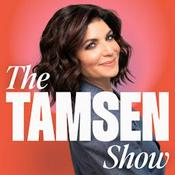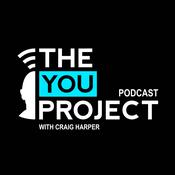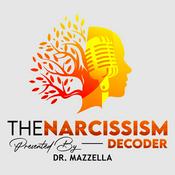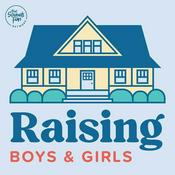Neurodivergent Conversations | Autism Spectrum, ADHD, AuDHD, PDA, Emotional Regulation, Neurodivergent parent
That Sounds Fun Network
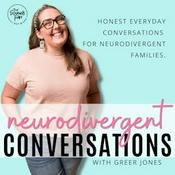
Latest episode
83 episodes
- Marriage can feel hard for so many reasons… and when you’re in a neurodivergent household, it can feel like there are extra layers you can’t always name.
In this solo episode, Greer shares a very honest snapshot of her marriage: she has ADHD, her husband is autistic, and they’re raising an autistic/ADHD child (with another little one whose “brain type” they’re still learning). She talks about the real stress points, the growth they’ve fought for, and the small “language tools” that have made communication feel safer and more doable.
Greer also opens up about a turning point from about five years ago—when she was close to leaving—and what helped them start repairing: individual counselling, marriage counselling, and learning how their brains work.
Why marriage can feel especially heavy in an ADHD/autism relationship
How miscommunication often comes from what wasn’t said (or how something landed)
The difference between being near each other… and actually feeling connected
Practical phrases that reduce conflict (like “10 minutes to dream” and “10-minute tap out”)
Why scheduling hard conversations can help neurodivergent nervous systems feel safer
How “survival seasons” can look like couch time—and why that can be okay (for a while)
A gentle reminder: you’re on the same team, and you’re not alone
If you’re in a season where it feels like you’re roommates, not partners—there’s no shame in that. You’re carrying a lot. This episode is your reminder that help is allowed, connection can be rebuilt, and sometimes the first step is simply finding words that work for your brains.
If this episode lands for you, share it with a friend who’s trying to love well in a neurodivergent home—and needs to feel a little less alone.GET THE LINKSCheck out the refreshed website
Learn about the Exhausted to Empowered CollectiveFollow me on socials: INSTAGRAM
FACEBOOK
Learn more about your ad choices. Visit megaphone.fm/adchoices Moving Abroad With an Autistic Child: How to Prep for Big Transitions, Find Community, and Thrive in Portugal with Alexis Nicole
12/2/2026 | 27 mins.If you are in a neurodivergent relationship we are doing a webinar talking about the everyday realities. The joys and challenges while being or being married to a neurodivergent person. Join us Feb. 12, at 8pm UK, replay is available!
What if the thing that feels impossible, moving countries with a sparkly-brained kid, could actually become the start of your child feeling more supported, more understood, and more free?
In this episode, we talk about the kind of preparation that helps autistic kids feel safe in big change, how to keep the vibe hopeful even when the logistics are a lot, and what it looks like to build community when you are new, anxious, and navigating a language barrier.
Today on Neurodivergent Conversations, I’m joined by Alexis Nicole from Mommashive, a travel and lifestyle creator living in Portugal after relocating from the United States with her family.
We get into the real, practical stuff you actually want when you are considering a move or a big trip with an autistic child, like:
why some autistic kids do better with more notice (not less), and how Alexis used previews, videos, and even paperwork to reduce anxiety
how to involve your child in downsizing and planning so it feels like something happening with them, not to them
what school can look like in Porto, including language support and why integration mattered to their family
the surprising ways travel (RV life and cruising) supported social confidence and new routines
how community can start online when you are nervous in real life, including the role of Facebook groups and creator communities
a few tiny “try it and see” regulation idear sweet in your bag, shared as an anecdotal tool that helped Alexis in the moment
This one is especially for the parent who is thinking, “I want to give my child more world, but I’m scared I’ll make everything harder.” You are not alone, and you are not the only one doing a ton of prep behind the scenes.
GUEST LINKS:
Follow Alexis over at Mamashive on Instagram
GET THE LINKS
Check out the refreshed website
Learn about the Exhausted to Empowered Collective
Follow me on socials:
INSTAGRAM
FACEBOOK
SPONSOR LINKS:
Check out ADHD Central and their great tools!
Learn more about your ad choices. Visit megaphone.fm/adchoicesLate-Diagnosed ADHD, RSD, and the Analog Tools That Help You Feel Calm Again (with Graham Meckling)
05/2/2026 | 35 mins.JOIN US FOR A WEBINAR for Neurodivergent Couples. Happening online February 12 at 8PM UK. Replay is available.
Ever feel like your brain is sprinting, even when you are sitting still?
Like you can be everyone’s friend, but still feel a little… untethered?
In this episode, we talk about what it is like to be late-diagnosed with ADHD, how overthinking turns into assumptions, and why the smallest supports can be thelp you breathe again.
Today on Neurodivergent Conversations, I’m joined by Graham, an author (including Babies Don't Talk), entrepreneur, and one of the humans behind ADHD Central, a brand analog supports for ADHD brains.
We chat about the real, everyday stuff that so many late-diagnosed adults quietly carry, like:
why “Do I want to do this… or does my ADHD?” is a game-changing question
how rejection sensitivity can spiral when your brain fills in the gaps
why not making assumptions (and actually asking) can save so much heartache
the unexpected power of walking, slowing down, and giving yourself grace
how paper-based “external brain” tools can ger head and into the real world, without another app buzzing at you
If you are navigating adult ADHD, neurodivergent just craving tools that feel doable, this one is going to land.
GUEST LINKS:
Follow ADHD Central
Check out their resources
GET THE LINKS
Check out the refreshed website
Learn about the Exhausted to Empowered Collective
Follow me on socials:
INSTAGRAM
FACEBOOK
Learn more about your ad choices. Visit megaphone.fm/adchoicesSelective Eating in Autism: Food Jagging, and a Realistic Mealtime Reset with Brittyn Coleman
29/1/2026 | 38 mins.If mealtimes feel like a daily stress test, you’re not imagining it and you’re not failing. Sometimes it’s not the food that’s the problem, it’s the overwhelm wrapped around it. In this episode, we talk about what a realistic “reset” around food can look like for autistic kids, ADHD kids, and sensory sensitive kids, especially after a season like Christmas where everything felt loud and unstructured.
Today’s guest is Brittyn Coleman, MS, RDN/LD (Autism Dietitian). She supports families raising kids on the autism spectrum (and kids with sensory processing challenges) using sensory-informed, sensory-friendly nutrition approaches. She also shares the personal why behind her work, and practical strategies that protect trust, reduce pressure, and make progress feel possible.
In this conversation, you’ll learn:
what “resetting” mealtimes can actually look like when your child has safe foods and big sensory needs
why nervous system regulation matters for eating (and what to do if your child comes to the table already dysregulated)
how to simplify the mealtime environment (noise, clutter, lights, screens) without trying to be perfect
the difference between expanding a diet vs removing foods, including the idea: add before you subtract
what food jagging is, why it often shows up with ADHD and autism, and how to prevent food burnout
the “division of responsibility” approach to feeding, and what is (and is not) your job as the parent
Brittyn’s practical “one new food per week” strategy, plus how to build an easy food list to reduce decision fatigue
GUEST LINKS:
Follow Brittyn
Get the Food Hopper app
GET THE LINKS:
Check out the refreshed website
Learn about the Exhausted to Empowered Collective
Follow me on socials:
INSTAGRAM
FACEBOOK
Learn more about your ad choices. Visit megaphone.fm/adchoicesParenting Burnout in Neurodivergent Families: Signs, Symptoms, and Micro Steps to Recover with Eleonora
22/1/2026 | 28 mins.You can be “fine” on paper and still be running on empty. If you’re doing the school meetings, the appointments, the meals, the meltdowns, and the mental load, but you can’t remember the last time you booked your own doctor’s appointment, this episode is for you. We’re naming burnout for what it is, what it looks like in real life, and the smallest first step to stop the spiral before you hit the wall.
Today’s guest is Eleonora, who supports families and caregivers and has a real-life, practical lens on what burnout looks like for parents, especially those raising neurodivergent kids. In this conversation, we talk about the difference between being tired and being depleted, how burnout builds over time, and what “caring for the caregiver” can look like when your life already feels maxed out.
In this episode, we cover:
what burnout actually is, and the questions that reveal it (sleep, food, water, emotional reactions, and how you respond in crisis)
burnout vs regular parenting exhaustion, and why burnout is not solved by one good night of sleep
the “caregiver balance sheet” idea, and how noticing patterns helps you interrupt them
self-care myths that keep parents stuck (it has to be expensive, it has to take hours, it’s selfish)
micro moments that actually work, like a five-minute pause, silence, darkness, or a tiny check-in with yourself
a surprisingly powerful strategy: removing one task from your plate and delegating it fully
how to make it easier to accept help by keeping a list of three things someone can do when they ask
why this matters for the whole family, because caring for yourself supports your ability to show up with clarity and resilience
Ready for a reset?
Join my free 3-day workshop Overwhelm Reset starting January 26th:
GET THE LINKS:
Check out the refreshed website
Learn about the Exhausted to Empowered Collective
Follow me on socials:
INSTAGRAM
FACEBOOK
Learn more about your ad choices. Visit megaphone.fm/adchoices
More Education podcasts
Trending Education podcasts
About Neurodivergent Conversations | Autism Spectrum, ADHD, AuDHD, PDA, Emotional Regulation, Neurodivergent parent
What’s it really like parenting a child with ADHD and autism? How can parents, teachers, and communities better support neurodivergent children? How do autistic and ADHD individuals experience the world? Each week, we explore these questions with practical strategies, emotional insight, and real stories.
I’m Greer — a mum of two boys (and two dogs!) raising a child with special educational needs (SEN) alongside my husband. Our daily life looks different from the norm, but it’s full of love, advocacy, and growth. I started this podcast to create a space for parents of neurodivergent kids, educators, and allies to learn, connect, and build understanding together.
You’ll hear parenting tips, advocacy guidance, sensory strategies, and personal reflections that shine a light on both the joys and challenges of neurodivergent parenting. Through heartfelt solo episodes and guest interviews, we’ll talk about EHCP or IEP processes, school support, emotional regulation, and the big feelings that come with raising ND kids.
Whether you’re here as a parent of an autistic or ADHD child, a late-diagnosed adult, a teacher seeking insight, or someone wanting to understand the neurodivergent world, this podcast is your space to grow, connect, and know you’re not alone.
Welcome to The Unfinished Idea — a podcast all about parenting, autism, ADHD, and life in a neurodivergent family. Here, we open up honest conversations about neurodiversity, raising neurodivergent children, and navigating the everyday realities of SEN parenting.
Podcast websiteListen to Neurodivergent Conversations | Autism Spectrum, ADHD, AuDHD, PDA, Emotional Regulation, Neurodivergent parent, Unfiltered With Dave Letele and many other podcasts from around the world with the radio.net app
Get the free radio.net app
- Stations and podcasts to bookmark
- Stream via Wi-Fi or Bluetooth
- Supports Carplay & Android Auto
- Many other app features
Get the free radio.net app
- Stations and podcasts to bookmark
- Stream via Wi-Fi or Bluetooth
- Supports Carplay & Android Auto
- Many other app features

Neurodivergent Conversations | Autism Spectrum, ADHD, AuDHD, PDA, Emotional Regulation, Neurodivergent parent
Scan code,
download the app,
start listening.
download the app,
start listening.

